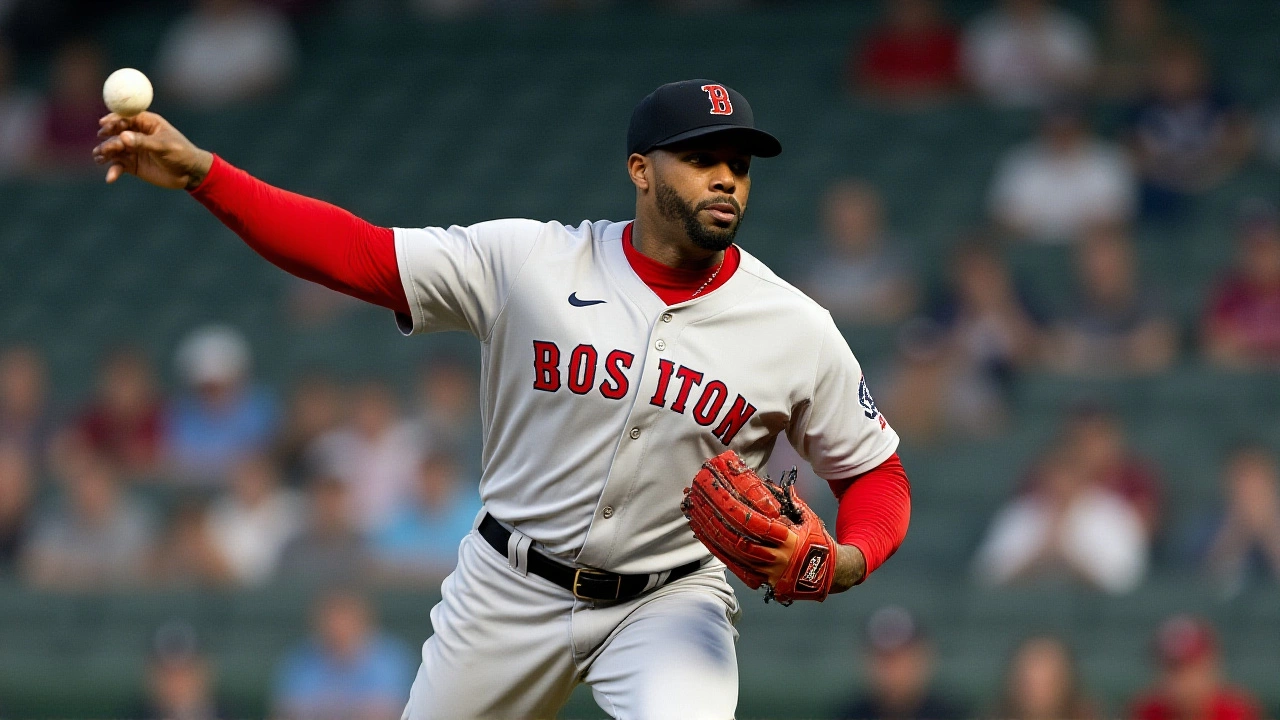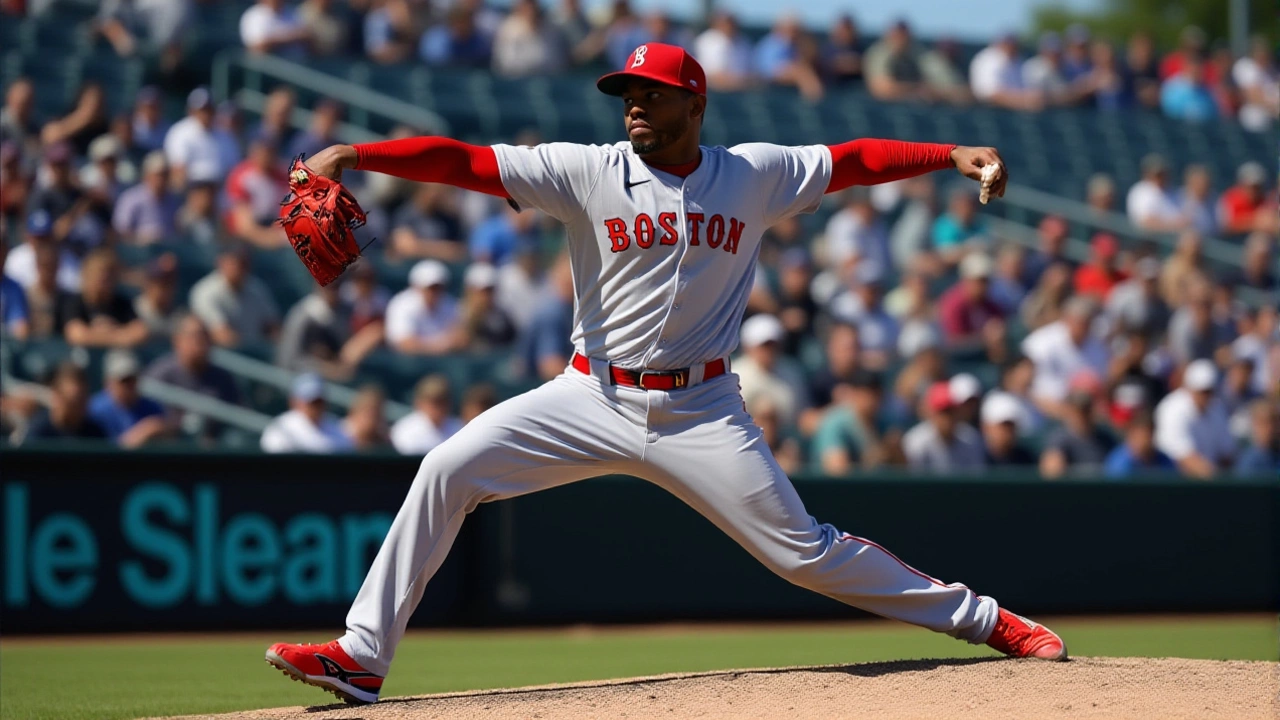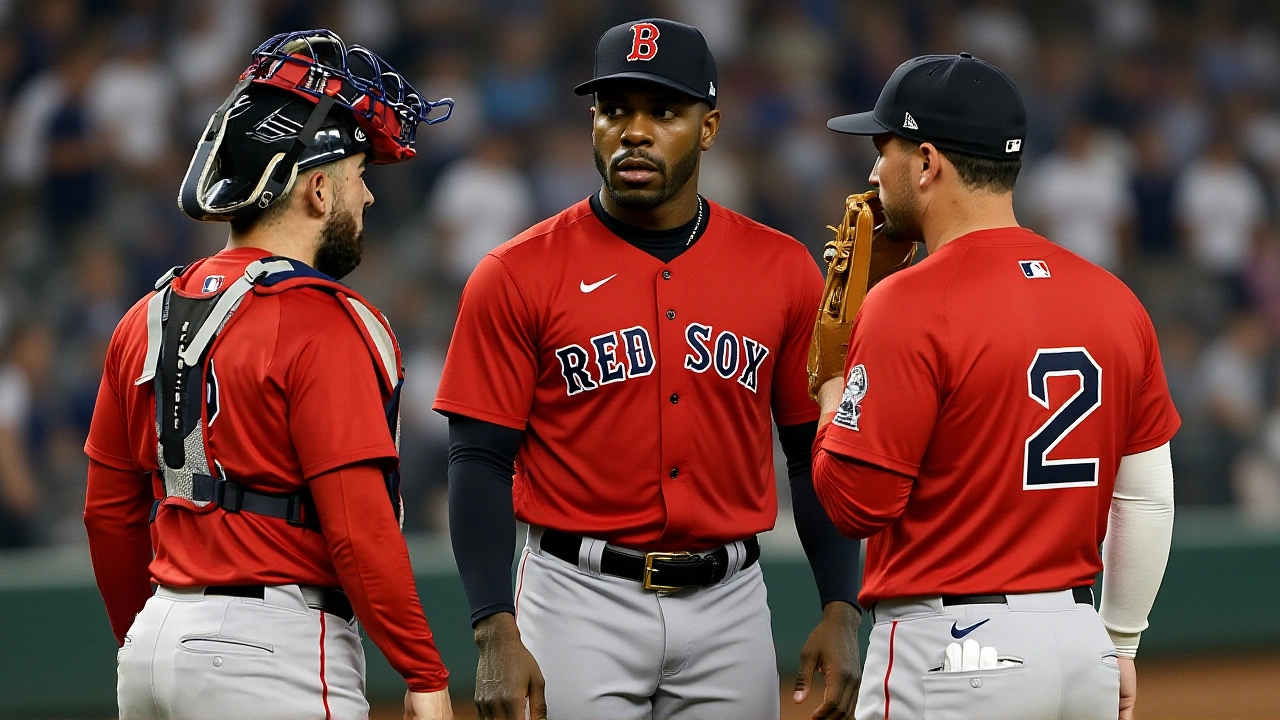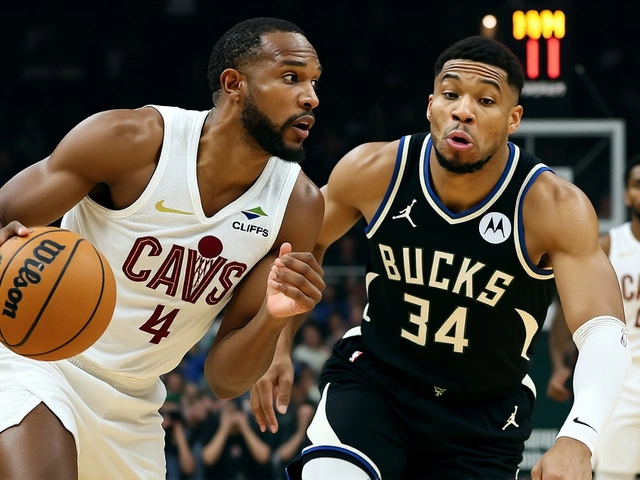When New York Yankees (the No. 4 seed) host the Boston Red Sox (the No. 5 seed) at Yankee Stadium for the 2025 American League Wild Card round, the baseball world gets a fresh chapter in a rivalry that’s never short on drama. The series kicks off on Tuesday, September 30, 2025, at 6:08 PM Eastern, with back‑to‑back games on Wednesday and, if needed, Thursday. It’s the first postseason meeting between the two clubs since the 2021 AL Division Series, and the sixth in the rivalry’s storied history.
How the Seeds Came About
The Yankees finished the regular season with 94 wins, edging the Red Sox’s 89 but falling short of the division crown after a tiebreaker loss to the Toronto Blue Jays. That loss handed Toronto a first‑round bye and left New York as the fourth seed, granting them home‑field advantage for the three‑game series.
Boston, meanwhile, clawed out the fifth seed despite dominating the head‑to‑head matchups – they won nine of 13 games against New York, a 9‑4 edge that has fueled talk of a "Red Sox curse" at Yankee Stadium. Oddly enough, the Yankees snagged three of the last four meetings in September, suggesting a late‑season swing in momentum.
Pitching Matchups and Who’s Sitting Out
Yankees manager Aaron Boone has locked in his rotation: Max Fried starts Game 1, Carlos Rodón takes the hill for Game 2, and Cam Schlittler is penciled in for a possible Game 3.
Boston’s rotation is still a work‑in‑progress, but the Red Sox have announced Garrett Crochet for Game 1 and Brayan Bello for Game 2. A major storyline is the absence of Lucas Giolito, who will miss the entire series with an elbow issue.
Garrett Crochet’s résumé against New York reads like a warning label: 3‑0 versus the Yankees this season, a 3.29 ERA, and 39 strikeouts in just 27.1 innings. Overall, Crochet posted an 18‑5 record with a 2.95 ERA across 205.1 innings, ranking in the 99th percentile for Pitching Run Value on Baseball Savant.
Why the Series Matters Beyond the Bracket
Beyond the obvious – a ticket to the AL Division Series – the winner gets the chance to shape the postseason narrative. The Yankees boast the league’s No. 1 offense as of September, powered by the likes of Aaron Judge and Giancarlo Stanton. But those bats have struggled against Crochet’s left‑handed arsenal, where he’s gone 3‑0 this year.
Betting markets have the Red Sox at +165 to take the series, meaning a $100 wager would net $165 if Boston clinches two wins. The Yankees, despite the home‑field edge, sit at -200, reflecting their higher regular‑season win total.

Historical Glance at the Rivalry’s Postseason Encounters
The AL Wild Card format is relatively new, but the Yankees‑Red Sox rivalry has produced memorable postseason moments: the 2004 ALCS miracle, the 2018 ALDS showdown, and the 2021 ALDS that ended with a Boston victory. In those six meetings, the series has gone the distance three times, and the margin of victory averages just 3.15 runs – a testament to how tight every contest can be.
Even the regular‑season numbers underline the closeness: out of the 13 games this year, 10 were decided by three runs or fewer. That statistic hints that even a single defensive lapse or a late‑inning home run could swing the whole series.
What to Expect on the Field
- Game 1 (Tue, Sep 30, 6:08 PM ET): Max Fried vs. Garrett Crochet – a left‑handed duel that could set the tone.
- Key Yankees batters: Aaron Judge, Giancarlo Stanton, Juan Soto – all looking to break Crochet’s dominance.
- Red Sox weaponry: J.D. Martinez, Rafael De vers, and a bullpen anchored by Hans Wilk.
Game 2 shifts the spotlight to Carlos Rodón, who struggled against Boston’s lineup in two of three regular‑season matchups. If the Yankees lose Game 1, they’ll need Rodón to deliver a performance that flips those numbers.
Should the series head to a decisive Game 3, Cam Schlittler will be staring down a Boston roster that has shown it can thrive in the Bronx. The swing of a bat, the stretch of a reliever’s arm – every move will be magnified.
Looking Ahead: The Next Round
The winner of this Wild Card clash will face the victor of the other AL Wild Card series – either the Toronto Blue Jays or the Chicago White Sox – in the Division Series. For New York, a win would keep their postseason hopes alive after a season that saw them lose the division by a mere half‑game. For Boston, advancing would cement a narrative that they can out‑pitch and out‑hit the Yankees when it matters most.
As Boone told the New York Post, “They got the better of us this year. We won the last series. It’s always a battle. It’s coming down to three games between the two of us. Hopefully, we can back up our last series with another series win against them.” The statement captures the tension – both teams know every pitch could become a headline.

Frequently Asked Questions
How does the Wild Card series affect the Yankees' postseason chances?
A win sends New York to the AL Division Series, keeping their championship hopes alive after a marginal miss on the division title. A loss eliminates them, ending a season that featured the league’s top September offense.
What are the key pitching matchups to watch?
Game 1 pits left‑hander Max Fried against left‑hander Garrett Crochet, who is 3‑0 with a 3.29 ERA versus the Yankees this year. The second game features Carlos Rodón against Brayan Bello, a matchup that could swing the series.
Why is Boston’s regular‑season record against New York significant?
Boston won 9 of the 13 meetings, showing they can execute in Yankee Stadium – a venue where they captured five of seven games this year. That dominance suggests a psychological edge, even though New York holds home‑field advantage in the Wild Card.
What does the betting line indicate about the series?
Odds of +165 for Boston and -200 for New York reflect the Yankees’ higher win total and home‑field benefit, but they also acknowledge the Red Sox’s regular‑season success against the pitcher's roster, especially against Crochet.
Who could benefit the most if the Yankees win?
A victory would boost the market value of core sluggers like Aaron Judge and Giancarlo Stanton, cementing their status as postseason leaders and potentially influencing future contract negotiations.




